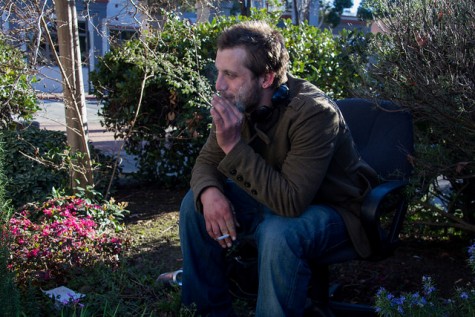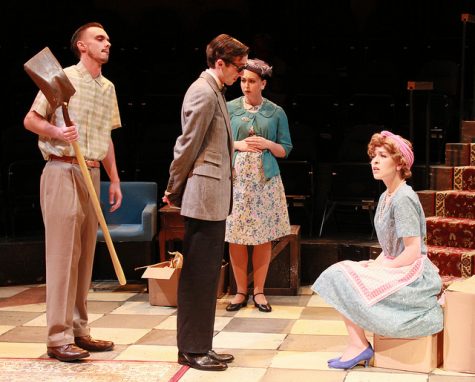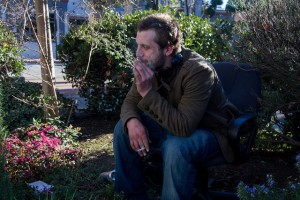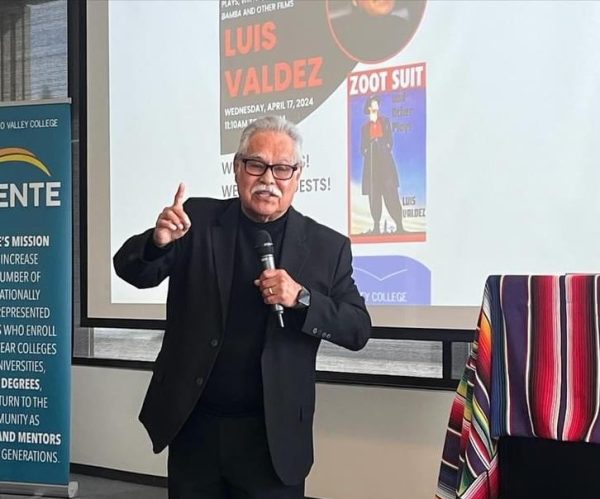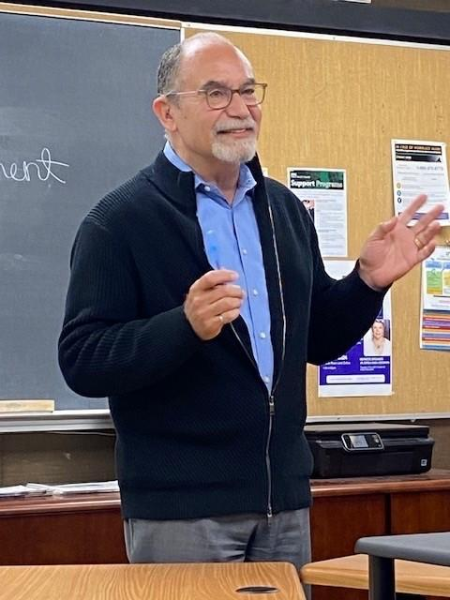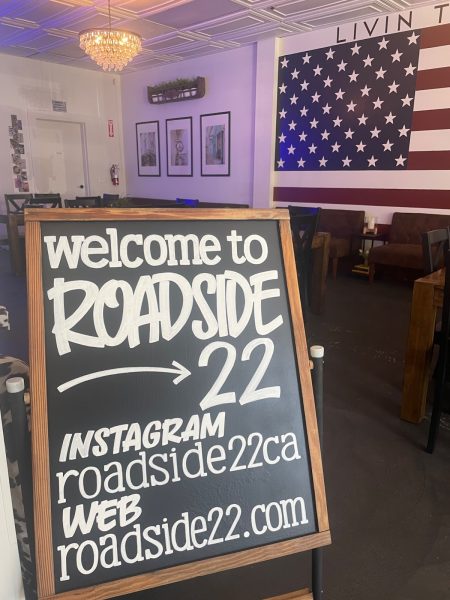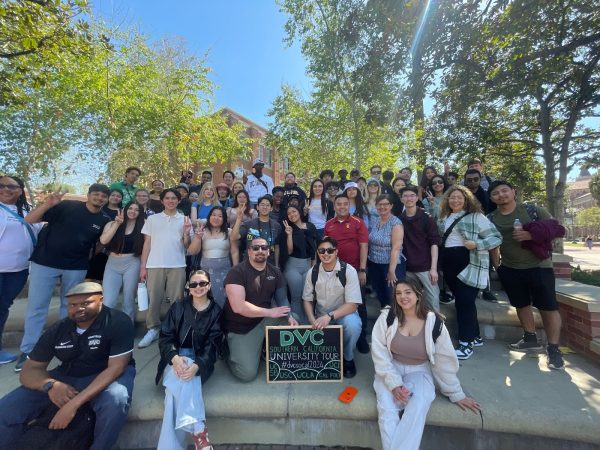Out with the old, in with the new: gentrification comes to the suburbs
December 7, 2016
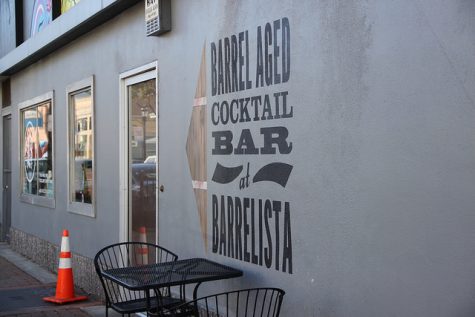
Barrelista opened in Feb. 2014 on Main Street in Martinez.
Diablo Valley College has undergone some major transformations over the last few years, from the newly renovated Commons to the brand new cafeteria and culinary arts building. The campus will continue to see new upgrades for the next 10 years. But what about Pleasant Hill and the surrounding cities?
Commuting students may have noticed the closure of the nearby Tahoe Joe’s, Elephant Bar, and the seemingly abandoned Sizzler’s. The closures of these eateries marks the end of an era for kitschy, hyper-themed restaurants. The suburbanites have spoken and they are ready for a more modern and upscaled environment.
At the same time, rents in more metropolitan cities like Oakland and San Fransisco are skyrocketing and the out-priced tenants are migrating to cities like Concord, Martinez, and Pleasant Hill. These cities appear attractive to prospective city dwellers due to easy access to BART, cheaper rents, and a budding downtown scene.
Concord alone has seen a 3 percent population growth between 2010 and 2015 and is slated to grow another 3 percent by 2020.
The hipsters from over the hill come not only with higher salaries but with different tastes and habits of going out and the surrounding business’s must accommodate them.
Downtown Concord is a prime example of this. Salvio Pacheco Square will soon be 100 percent occupied due to new restaurant openings. Lima, a Peruvian restaurant, and three Asian-inspired eateries- Fusion Bistro, Poke Salad and Tea for U.
On the other side of town, Arash Pakzad is crafting his own vision of what the people want.
Pakzad, a transplant himself, moved to Martinez from Los Angeles in 2011 and purchased his first property in Martinez in 2012. He transformed a sushi place into Barrel Aged, a modern American eatery with an emphasis on locally sourced products and quality cocktails.
He quickly saw the need for similar places in the area and opened up a coffee shop, Barrelista, with the same sentiments.
“I had my coffee shop operating at the same time as Barrel Aged. I bought the coffee shop, it was an empty space. I got that in Oct. 2013 and I built the coffee shop and opened up the coffee shop in Feb. 2014 and we were operating both the restaurant and the coffee shop diagonally away from each other,” said Pakzad.
For the first eight months of business, there were days the coffee shop would only sell $30 or $40 worth of product.
“The coffee shop is pretty dynamic because Martinez was definitely still not the place it is today, or the place it’s becoming. We were the first in the immediate area, aside from Mountain Grounds, to introduce a forceful organic program where your only choice was to get organic milk, your only choice was to get an eight ounce cappuccino and a 12 ounce latte. You couldn’t get venti’s and big huge sizes of your coffees. The only choice was to get all natural meat and hormone-free and nitrate-free and organic meats. We were learning how to do it in the coffee business and people weren’t ready for one size lattes, one size cappuccinos,” said Pakzad.
Over the years the community came around and realized the value Barrelista had to offer.
“You can go into Barellista and get an organic whole milk latte and a Wakin’ bacon sandwich for less than $10 bucks. So we kinda like culture shocked or re-shocked the neighbor hood with not up charging, but forcing quality,” said Pakzad.
The bar eventually moved over to the coffee shop.
“We reintroduced the bar working side by side with the city of Martinez.” The community was also a huge help. “We got probably 40 or 50 letters that people wrote, and we didn’t have a hard time doing it, they just did it out of their own proactive measures to help us get re-opened in some kind of format,” said Pakzad.
Working with the community helped Pakzad to continue his passion of opening restaurants and giving back. “I consider us a value, and I consider us loving human beings that truly believe in hospitality and service,” he said.
Working with the community can also help the people that are often, and sometimes literally, left out in the cold when areas become more gentrified and rising rents force people onto the streets.
“I ride my bike to work and I ride along the canal trail, and there’s just people getting up in the morning, they’ve been sleeping along the canal trail, because you can’t afford rents around here,” said Melissa Jacobson, a history professor at DVC.
There’s no doubt that the Bay Area, although a blessed place to live, is one of the most expensive places to live in. According to rentjungle.com the average rent in Concord was $2270 in Oct. 2016.
“They’re in this difficult spot,” said Jacobson, in reference to the shortage of jobs available that pay enough to afford the areas rental prices. “There’s no place like in early twentieth century through World War II, you could get a room for the week or a room for the night, they were called SRO’s, single room occupancies, and you could get a place to stay while you kinda get things together and you didn’t have to get first months, last months and pay utilities,” Jacobson continued.
Jacobson emphasized the need for more affordable housing in the area rather than more commercial real estate. A 180-unit apartment complex recently broke ground at 1825 Galindo St. and is slated to open in summer 2018. Across the street a 270-unit apartment complex is in the works, as well as a 170-unit development at the former Blockbuster Video site, and a 230-unit complex on Salvio St. The units will have a range of price points, but will they be affordable? The question still remains.
As far as a solution is concerned, “What if the county had a job board for people to get county type jobs, like fix the streets, landscaping, or repair county buildings. I think it’s the county’s responsibility to try to find housing and find some jobs so people can feel good about themselves. Go to work, and have a place that’s safe to sleep, and it may not be a lot of money- at least you have some,” said Jacobson.
The current state of the economy in the Bay Area has left some better off than others, but Pakzad proves that business owners can make an impact as well.
“Nobody makes minimum wage that works for us, everybody makes over minimum wage.” Pakzad acknowledged that minimum wage although now higher, is still not enough to cover the true cost of living. “We’re able to employ people and give them 40 hours a week. Right now I have 17 employees just at the coffee shop,” he said.
He is also working on opening a new restaurant, Cuff and Collar, that will employ more people and give the community a new place to eat, drink, and socialize. “We in Martinez, I believe we see obstacles as opportunities and we’ve turned it into like our own quaint awesome thing.”





































































